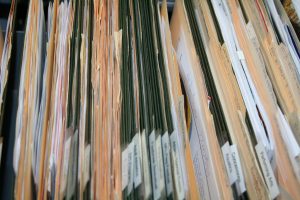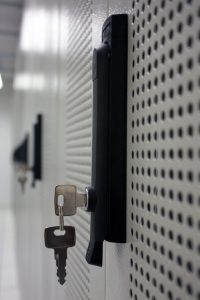
What happens to your research when you move on to the next great thing in life? If you’re like most scientists, the lab notebooks get relegated to a bookshelf or file cabinet where they collect dust until they are either packed in a box or picked up for a court case.
Every time I open my file cabinet full of old research, I look at it wondering if anything else can be done with it. And the filled notebooks on the shelf? They silently collect dust, lamenting their end of life.
That is until someone needs the information again. My master’s thesis work lay ignored for 3 years after I finished it. Then, out of the blue, my former advisor emailed me asking if there were any soil samples left — they were working on the nutrient cycles again. That last paragraph where we state more research needs to be done isn’t just to get more grant money. Someone always wants to know more — and we always want things to be researched further.
To make sure your work is ready to hand down to either your minions or your torch-bearer, there are a few steps you need to do.
- Have a dedicated spot for samples and materials.
Whether you’re working with data in a psychology lab or samples in a chemistry lab, it’s guaranteed that there are tangible items to deal with. Having a dedicated place to store these things so they can be found and used later on is essential. That’s easy enough while you’re working on it, but what about when you need to make room for new researcher? It’s time to work on a reliable storage space in your research facilities.
-

A huge setup is not necessary. Backup data to a central location.
I know, I know. Most university labs do not have this option. I don’t agree with it, but every lab manager has their own way of running things. If it were up to me, clearly they would have this — I can’t tell you how many students have lost data because of a technology problem. And saving the data onto a jump drive is no longer enough. With the availability of Cloud storage, you can and should take charge of your entire research history by storing things for later or “just in case”.
- Establish a “chain of custody”.
Not every lab is super careful with their materials and data. I’ve worked in a few from federal level to private labs, and I can say that each lab has their own level of chaos to work within. If you run the lab, start a chain of custody for materials and data that help you keep track of when things are moved from one place to another and one researcher to another. If you’re on your own, have your own internal system and keep notes in your lab book that you keep. Give the labs you leave a copy, while you keep the original.
As you work in the realm of research, it’s important to keep notes. I always recommend that our researchers keep the originals, but give Insanitek a copy. This is because they own their research, not us. Lawyers, on the other hand, would recommend that the lab that owns the research keep the original and the researcher take a copy. This is because if something ever needs to go to court, the original documents would hold up better and the researchers may not always be able to be found. In this matter, you should always check with a lawyer to find out what is best for your situation.